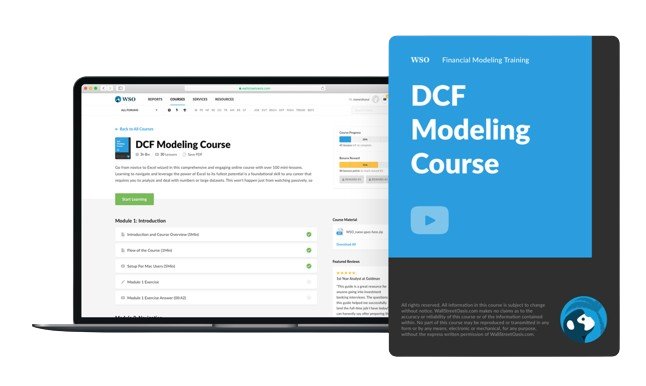Investment Methods
These can be defined as saving or placing money into a vehicle to gain a return from it in the future.
Investing can be very simple or complex, depending on the asset class in which one is trying to invest. Investments can be defined as saving or placing money into a vehicle to gain a return from it in the future. Doing this is important for individuals and businesses.

There are many different methods when someone is starting their investing journey. Therefore, it is important to know what investment methods and asset classes are available and what return they might give over time— for example, equities or real estate.
Before investing, having a strategy or method is critical before pushing any money into the asset. Investors should have backtested any potential method and seen how it has been proven to work by others, i.e., real estate investing is a great investment.
Investors should take a few steps before determining if their plan will work. First, they should pick a method, then an asset class within that method. For example, equity investing is a method, but there are different assets, such as stock or mutual funds.
Once investors figure out which method and asset class they like, they can test their strategy to ensure it works. Investors have many different methods and assets to choose from. There are:
- equities,
- debt, and
- other hybrid or mixed investments available.

Investors may choose different assets depending on how much risk they are willing to take and how much they want to invest. Investing can be very rewarding; however, it can be very disappointing as well. Therefore, investors must pay attention to the amount of risk they take.
Flexibility is a big factor when choosing an asset class as well. That said, the strategies they use can be strict or flexible. For example, real estate investing is more relaxed than other investments; on the other hand, there is not much you can do with bonds, which makes bonds strict.
Investment Methods
A few investment methods exist, such as,
- equity,
- debt, and
- other hybrid investment vehicles.
In addition, investments can be bought to sell at a higher price in the future. This can be stock, bonds, or equipment for companies.

1. Equity Investments
Equity investments can be considered any private or public company ownership. For example, someone starting their own business has 100% equity in their company. On the other hand, someone who invests in public companies also owns part of a company.
Owning a company and owning part of a private company is considered private equity; specific firms do this. Private equity and venture capital firms invest in start-ups and other companies needing capital to expand. Some of the companies are high risk/high reward.

Retail investors and other public investment firms invest in publicly traded companies. These are hedge funds, investment banks, and other various investing firms. All equity investments are riskier than non-equity, but the reward can be much higher than others.
Along with the investments being riskier, the portions of investments tend to be much larger. For example, sometimes large funds will take a controlling percentage of a company through their common stock.
2. Debt Investments
Debt investments, like equity investments, can be publicly or privately issued. For instance, bonds and credit swaps can be bought and sold on open markets like a stock exchange. Privately, they can be issued by companies or municipalities.

Debt investments are considered much safer investment vehicles when compared to equity investments. The general concept with debt investments is giving a loan to an entity, corporation, or government and receiving back the principal plus the interest earned.
A good example of debt equity is buying a corporate bond with 4% interest. By doing this, you are lending the corporation money to be paid with 4% interest. When the bond has matured, you will receive your bond back, along with interest paid.
3. Hybrid Investments
Hybrid investments have a mix of debt and equity structures. A great example of a hybrid investment is paying a loan(debt) for part ownership in the company (equity). This example would be considered fairly risky; however, the reward is also high.

Another example of investing in a hybrid asset would be a convertible bond. Convertible bonds are bought with a predetermined interest rate; however, you can convert the bond to common stock at any point. Many hedge funds use this strategy.
Hybrid investments can take advantage of the best of both worlds, i.e., equity and debt investments. The last example is called derivatives; derivatives are assets whose value is reliant on the value of another security.
How to invest?
Investing was once challenging when there needed to be more resources available to learn from. However, that is no longer the case, considering the plethora of resources, courses, books, and videos available to learn how to invest. Therefore, someone has to find what is best for them.

Many people enjoy investing in equity securities on the stock exchanges. But unfortunately, only a little work goes along with this;
- you must open a brokerage account,
- find good companies to invest in,
- then let your money ride and grow until you're ready to pull it out.
Others like the challenge and risk that comes with investing in real estate. This method can be hard, but the reward is immense. With the appreciation and the mortgage being paid by renters, this investment can produce a great asset if done correctly.
Whether you are investing in companies, bonds, or derivatives, you must have a strategy or plan outlining how you plan to receive a profit. This is crucial to an investing method. The more detailed a strategy or plan is, the better it will turn out correctly.

When choosing an investment method, you should consider your resources and the risk you are willing to take with said capital. Figuring this out will allow you to find the perfect asset for you to invest in. Once you invest, it can start providing a return.
When it is providing a return, you keep returning those gains into other investments. This is how many investors grow their accounts over time. Other investing strategies involve buying undervalued assets, then flipping them for a profit when they increase.
Value investing is great for people who plan to hold assets for a long time. If one is looking for valuable companies that seem to be undervalued, they can create great returns throughout ten to twenty years of holding. This is the opposite of growth investors.

Growth investors are sometimes referred to as the people looking for the "next big thing;" these were the dot com investors during the Dot Com Bubble. They will invest in companies with high potential for massive gains, but they are mostly speculative stocks.
These investors' strategies are usually high-risk/high-reward investors. They understand, at least we hope, the risk they are taking by investing in young companies that have not yet proven themselves through maturity. However, their investments can be 3x within a few years.
In general, there are many different investments and strategies to go along with them. All someone has to do is figure out the number of resources they have and how much they want to risk. Then, they can decide which investments they want to carry.
Who can invest?
Anyone can invest in whatever they wish if they have the capital and risk tolerance. There are some age restrictions to invest in equities through different brokerages; however, once you become an adult, the investment options are limitless, especially in the equities markets.

When investing in real estate, you must have a decent credit score and preferably a 20% down payment. Once you invest in real estate, you can manage the homes actively or outsource them to a property management company.
Some need more time or interest to find their investments. In this case, they can give their money to:
- an investment firm,
- financial advisor, or
- wealth management firm.
These businesses will take care of your investments if you wish to invest with them.
The difference between these firms is that investment firms are for high net-worth individuals, financial advisors work with those in financial distress, and they can help them plan to reach their future goals. On the other hand, wealth management firms manage people's investments.

When someone uses any of these financial firms, they will likely charge a fee for their services. For example, some firms charge a fee up front and a percentage fee for any of the profits. On the other hand, some firms only charge for the profits they helped produce.
Most individuals do not deal with their investments, especially if they have a large lump sum of capital to invest. However, many wealth management firms for individual investors are willing to pay a small fee out of the profits they might gain.
Investing on your own can be stressful and challenging in the beginning, but there are specific strategies that can help young investors learn the ropes. If they are unwilling to do the work themselves, they can give their money to firms who will invest it for them.
How Does Economics Affect Investing?
The economy moves in economic cycles, also known as business cycles, which affect how institutional and retail investors do with their capital. During the ups and downs of the economy, troughs and peaks will form from high expansion and contraction levels.

When the markets are expanding, unemployment is declining, businesses are performing well, and they are expanding. This is usually when bull markets occur in the stock market. In addition, most corporations will have good earnings reports, sending the market higher.
Also, in times of economic expansion, there is less monetary policy; however, inflation can get out of hand if the Federal Reserve (Fed) is not careful. If inflation threatens the economy, the Fed may consider tightening monetary policy and raising the federal funds rate.
Rising inflation can be dangerous for a booming economy because the Fed will eventually have to raise interest rates. Doing so can send the economy into a recession if the Fed is not careful. Times of recession are good for investment firms and retail investors.

During this time, the investors usually hold cash in their accounts until they see an opportunity to invest. However, outside of equity markets, there are certainly other opportunities. Ideally, prices will decrease in the real estate market to make it easier for investors.
When the market begins to expand again, a trough will form; this is the bottom of a downtrend in the economic cycle. During this time, the economic outlook is more positive, and investors will begin to buy assets again. This will give companies more money to pay their bills and expand.
To summarize, when economies are expanding, there will be more investors, and investments are likely to gain momentum. However, fewer investors will be spending money when contracting, as they would rather wait until there is a sign of economic upside.
Summary
Investing can be as simple or complicated as the investor makes it. For example, retail investors will normally keep their investments simple, with investments in equity markets and some real-estate portfolios. However, there are several methods and strategies they can use.

Debt, equity, and hybrid are all investment methods. Debt investments are debt instruments issued by a company, municipality, or the federal government with interest payments in return. These investments include bonds or credit swaps and several strategies to be used.
Equity investments issue ownership to individuals and companies that invest in their companies. Investing in companies in exchange for equity can be completed publicly and privately through stock exchanges or investment firms. Hybrid investments are a combination.
Hybrid investments are a combination of debt and equity methods. An example of a hybrid investment is an investment called convertible bonds. Convertible bonds are bought with lower-than-normal interest rates and can be converted into common stock.
These methods can be used in different investing strategies in many asset classes, such as equities, bonds, and real estate. Additionally, anyone can invest individually or give their capital to investment funds or wealth management firms.




or Want to Sign up with your social account?